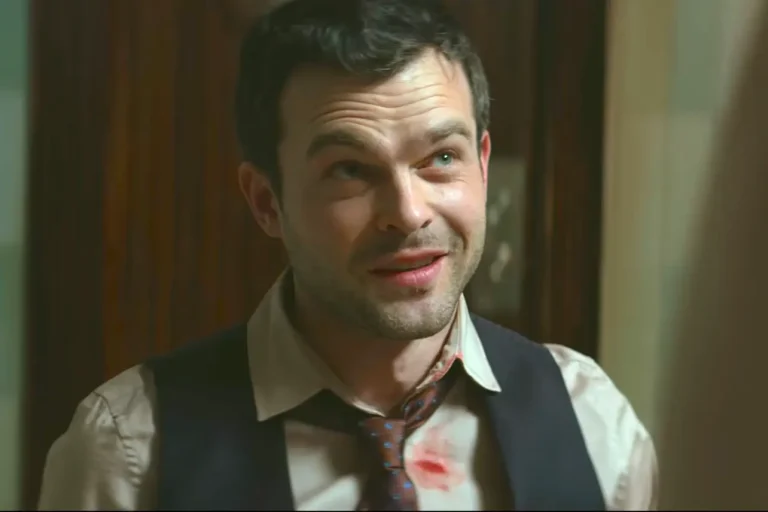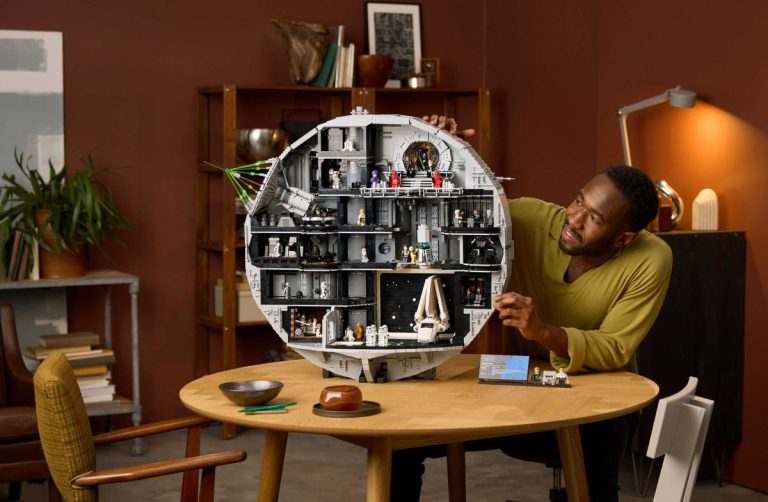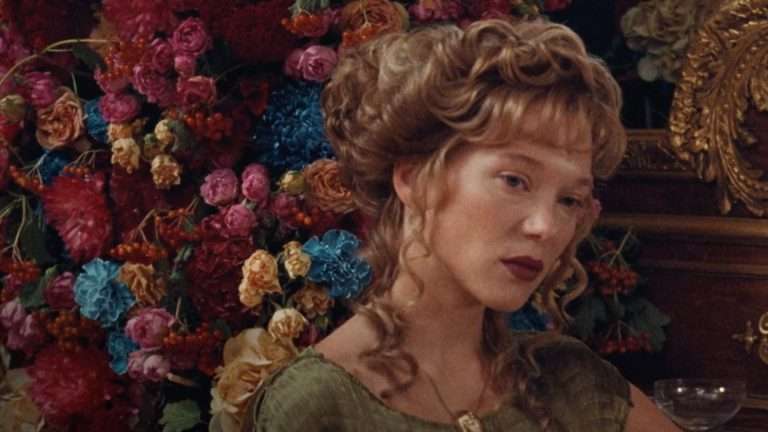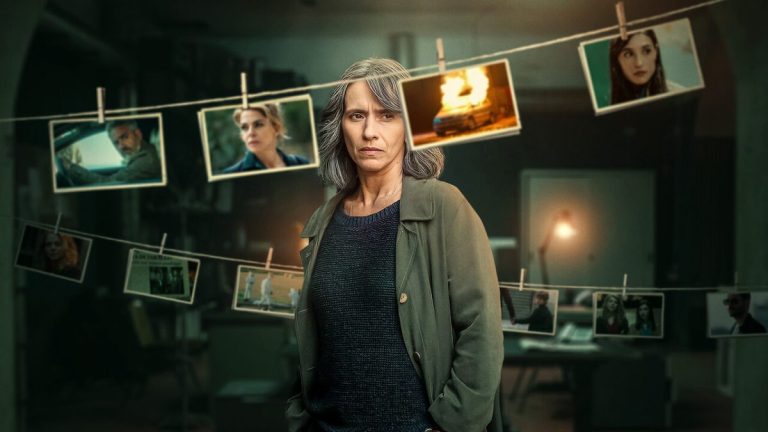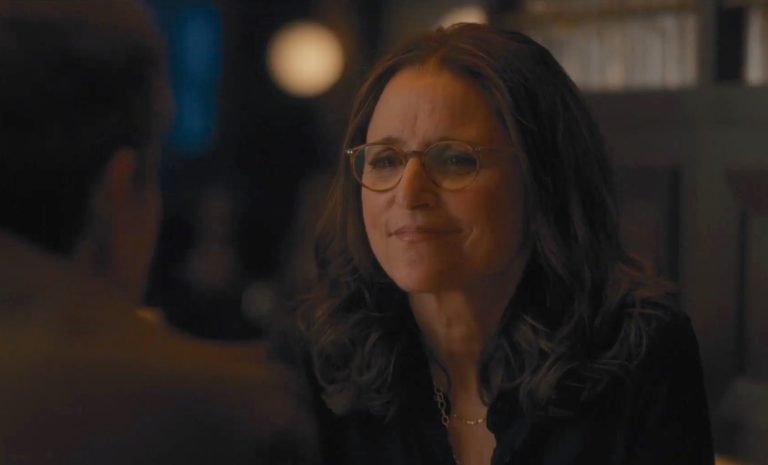Mrs. Davis Creators Talk About their Bonkers Show: Mrs. Davis is arguably the most original television show of the year. The Peacock offering was released back in April and stars Betty Gilpin as an AI-fighting nun. If you haven’t started watching it, this one comes highly recommended. There is perhaps no one – even ChatGPT – who can quite guess which direction Mrs. Davis will veer into. It is existential, surreal, and the culmination of creative witchcraft from its prodigal creators. Mrs. Davis truly pushes the boundaries of narrative conventions in the most unexpected and hard-hitting way.
The modern viewer is obsessed with something fresh that is both quirky and relatable. Gone are the days when they would tolerate sub-standard molly-coddled feel-good content driven by years of contrived, formulaic filmmaking. The drastic change in taste is a result of how content is made today. McDonald’s changed the face of dining out with its fast-food revolution, and the advent of OTT and digital media has done the same. Tara Hernandez and Damian Lindelof, the creators of Mrs. Davis, are mindful of this anatomy and take the task quite seriously.
The creators come from different backgrounds and lend the show unique strengths. Hernandez was a writer on both Big Bang Theory and Young Sheldon, while Lindelof’s tryst with cinema has been through acclaimed shows like Lost and The Leftovers. Mrs. Davis strongly showcases elements of storytelling from both worlds. The eight-part series will finish its maiden season in May, and its creators, were at hand to reveal how they got a grasp on Mrs. Davis’ plot, the pacing of the show, and the challenges of deciding what’s right, and also their favorite moments from the show yet.
Question: When you’re telling an original story like this, that people don’t have source material they can turn to, and you’re dropping your audience into this unfamiliar world, how do you decide how much to tell right away, how much you want to slowly peel back, and how much you want to just keep a secret? How do you balance all of that?
HERNANDEZ: This is a mythology-dense series, all with very careful crafting and utilizing the talents of our amazing writers‘ room. But certainly, when crafting a pilot, it has to be character focused. What’s gonna keep audiences coming back, or what’s even gonna just turn the page, episode to episode, is someone that you’re on the journey with and that you can go through all the bonkers left and right turns and zigzags and ups and downs with.
Doing so much work on Simone, just on the page and in our own writers’ room, and then casting Betty Gilpin, was just so fortunate for us. She has to be a competent leader and guide the audience and say, “I know this is crazy, but follow me. It’s gonna be okay. Get on the bike, or get on the horse.” That allowed us to be really brave and really audacious, at times, and outrageous, and really go for it. Those are just the things we like. We like content that goes for it and is zany and over the top. It was also a bit of just satisfying our own creative desires.
LINDELOF: I think there’s a real hunger for the unexpected. We all say that we want something original, and yet, and I’m just as guilty of this, we gravitate towards preexisting IP or things that we’re already familiar with. A new show, as we’re figuring out how to write it by the gut, is teaching you how to do so. The only way to know “where the line is” is to step over it. The kind of storytelling that really intrigues us is storytelling, where you’re a bit confused at first, and then everything starts to fall into place.
We really believe that the collective intelligence of the audience is much higher than a lot of television sometimes thinks it is. People can actually be a little bit lost as long as you have strong central performances, a little bit of humor, and something pulling them through. The idea of the first episode ending and you maybe having no idea what just happened, by the end of the second episode, the show starts to flip from its first four episodes, which are really about creating mystery, into the last four episodes, which are about resolving the mystery. If you can get to the top of the mountain, you’re gonna have a really fun ride down the other side.
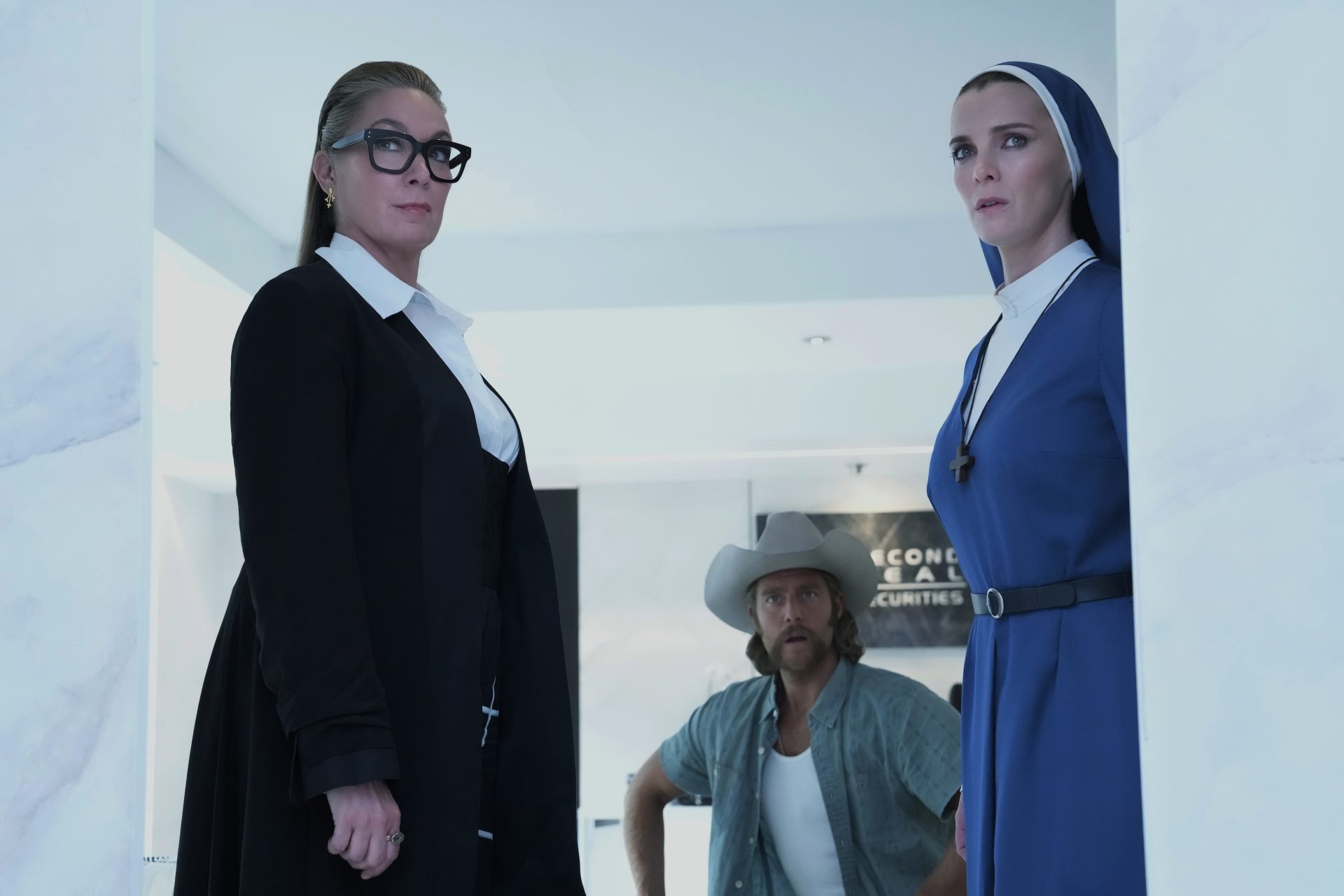
Question: This is a bonkers show that gets really bonkers sometimes. Did you know, from the beginning, that you could really push things, or did you realize, while you were making this, that you could go even further than you thought you could?
HERNANDEZ: You never know, one hundred percent, especially when you’re trying to push your own creativity and do something that you have never done before. To Damon’s point about having trust in the audience that we could go there and maybe they’d want to go there with us, so let’s all climb on the coaster together, that was something we just wanted to try and wanted to hope for. We wanted to treat our audience like they were going to be entertained, and while they might be confused at times, hopefully, by the end of it, they could see their way through the journey and have a really good time.
In addition to our own desires to push ourselves on the page, we staffed our writers’ room with some individuals who really have different and diverse backgrounds, and what entertains them, tickles them, and makes them smile or laugh or cry, is very different from what delights us. We all had a similar goal, but it came from different places, and I think that’s amazing, so you get the broad spectrum of it on screen.
LINDELOF: I also think that bonkers is a great adjective, but not everybody does. If someone asks, “How was that party last night?” and you go, “Bonkers,” the one thing that is almost guaranteed is that there’s gonna be follow-up. You’d be like, “Okay, bonkers, how?” And so, I definitely feel like we were needing some bonkers energy in our lives. We were all trapped in our houses and trying to figure out when [the pandemic] was gonna end, and the show really became an escape mechanism.
The great thing about storytelling is escapism, but at the same time, it reflects a fundamental truth about what it means to be alive at any given time. Hopefully, that’s universal, and there are emotional things that you can latch onto, otherwise, you’re just being wacky for wacky’s sake, and people aren’t gonna watch that. There has to be something to sink your teeth into, as it were.
Question: There are some pretty zany things in this, from a van with a giant cockroach on it to you actually casting Jesus, to a nun in a jumpsuit, to a white dove that’s following her around. Do you guys each have a visual that you love with this show that you are proud you actually got away with?
HERNANDEZ: In episode two, we link up with Wiley and the resistance, meaning this movement of men who are opposing the algorithm, Mrs. Davis, with Simone, and I just delight in their headquarters. They live in what we all call the Hippo Campus, which is an old hippo meat factory. Any time that is on screen, or anything hippo related is on screen, I have this childlike giggle because I can’t believe they let me get away with that. I find it really amusing and just off the path.
LINDELOF: For me, it’s the Excalibattle in the third episode, which is inspired by this documentary that several of us in the writers’ room had seen. There was the question, “What’s the stupidest competition that Wiley could engage in, in order to prove his manhood, but nobody cares except for him? It needs to be phallic. It needs to be Arthurian. What if it were just a giant sword sticking out of the ground?” And then, the first time that you see that on screen, it’s that ridiculous idea from the writers’ room that becomes manifest into reality. I always get delighted when I see that sword.


